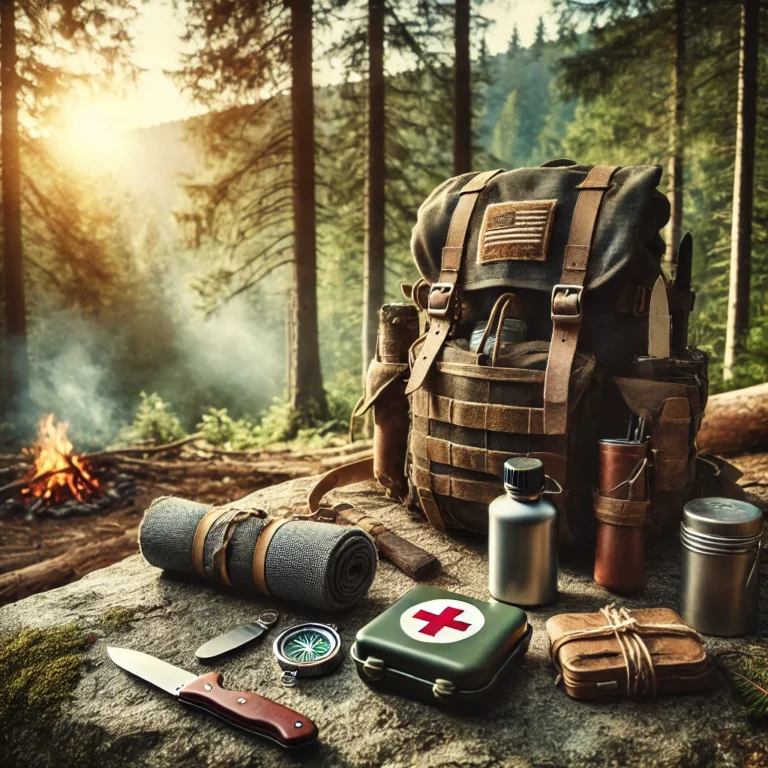When it comes to surviving in the wilderness or during an emergency, common survival mistakes can make or break your chances. By understanding and avoiding these pitfalls, you’ll be better equipped to face unexpected challenges. Let’s explore some frequent errors and how to steer clear of them.
Packing Too Much or Too Little
One of the most common survival mistakes is poor packing. Bringing either too much gear or not enough can spell disaster. Overpacking adds unnecessary weight, making it harder to move efficiently. On the other hand, underpacking could leave you without essential tools like a fire starter or first aid kit.
Tips for Balanced Packing
- Make a checklist: Plan ahead with a detailed list tailored to your trip.
- Test your gear: Before you head out, ensure everything works as intended.
- Focus on essentials: Prioritize items like water purification tools, shelter, and a reliable knife.
Ignoring the Importance of Water
Water is your lifeline in any survival scenario. A common mistake is not prioritizing hydration or failing to purify water. Drinking untreated water can lead to severe illnesses, leaving you weaker and vulnerable.
How to Stay Hydrated Safely
- Carry a filter: Lightweight water filtration systems are easy to pack and highly effective.
- Learn natural sources: Understand how to locate and safely collect water in your area.
- Boil if unsure: When in doubt, boiling water for at least one minute kills most pathogens.
Overlooking Basic Navigation Skills
Relying solely on GPS devices is another common mistake. Technology can fail, leaving you stranded and disoriented.
Master Navigation Basics
- Carry a map and compass: These traditional tools don’t rely on batteries.
- Practice before you need it: Learn how to read a map and use a compass in a controlled setting.
- Mark your route: As you travel, leave markers or write notes to prevent backtracking unnecessarily.
Neglecting Physical Fitness
Survival situations often demand significant physical effort. Failing to prepare your body is a common survival mistake that could hinder your ability to respond effectively.
Fitness Tips for Survivalists
- Build endurance: Engage in regular cardio activities like hiking, running, or cycling.
- Strengthen core muscles: A strong core improves balance and reduces injury risk.
- Simulate real scenarios: Practice carrying your survival pack during walks or hikes.
Misjudging Weather Conditions
Underestimating the weather can quickly escalate a tough situation into a deadly one. Exposure to extreme heat or cold is a mistake that can lead to dehydration, hypothermia, or heatstroke.
Plan for Weather Challenges
- Check forecasts: Always look up the weather before heading out.
- Layer smartly: Wear layers that can be added or removed based on conditions.
- Pack for extremes: Bring gear for unexpected weather, such as rain jackets or thermal blankets.
Failing to Learn Basic First Aid
Injuries are inevitable in survival situations, and not knowing how to treat them is a common survival mistake.
Boost Your First Aid Skills
- Take a course: A certified first aid course can teach you lifesaving techniques.
- Pack a kit: Include bandages, antiseptic, and pain relievers in your bag.
- Learn wound care: Understand how to clean and dress wounds to prevent infection.
Rushing Decisions in a Crisis
Panic and haste lead to poor choices in emergencies. Acting without assessing the situation is a common survival mistake that can worsen your predicament.
Stay Calm and Think
- Pause to evaluate: Take a moment to gather your thoughts and prioritize tasks.
- Follow the rule of threes: Remember you can survive three minutes without air, three hours without shelter, three days without water, and three weeks without food.
- Plan before acting: Have a clear course of action before proceeding.
Practice Makes Prepared
Avoiding common survival mistakes boils down to preparation and practice. Familiarize yourself with survival skills, test your equipment, and stay informed about potential scenarios. The more prepared you are, the less likely you’ll fall victim to these errors.
Survival isn’t just about gear; it’s about knowledge, mindset, and preparation. By addressing these common survival mistakes, you’ll greatly improve your ability to adapt and thrive in challenging conditions. Remember, small steps today can make a big difference tomorrow.



